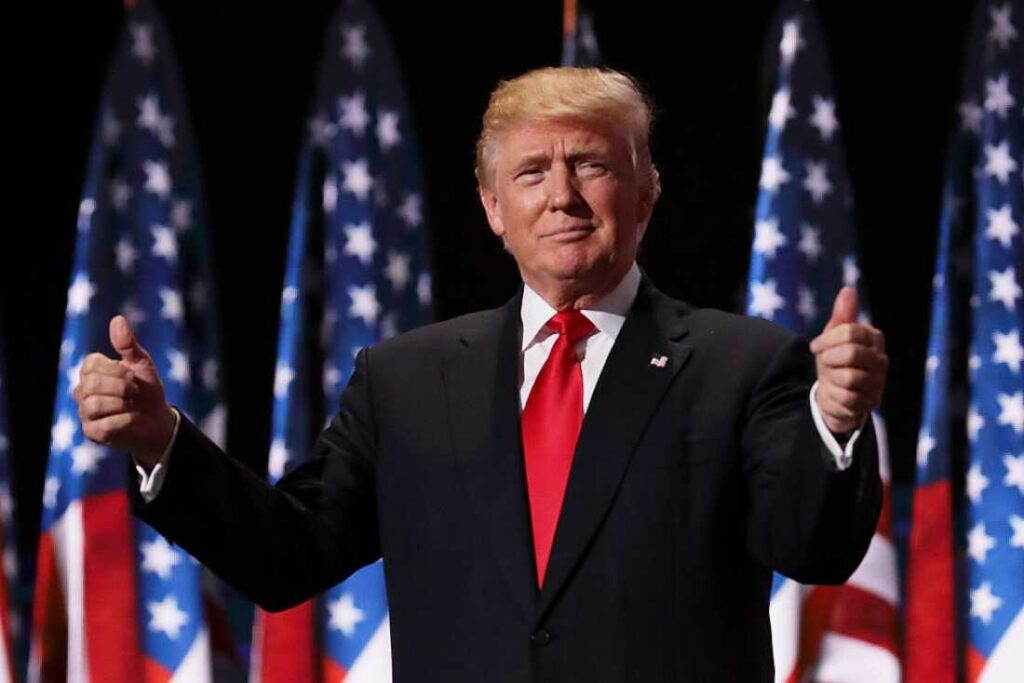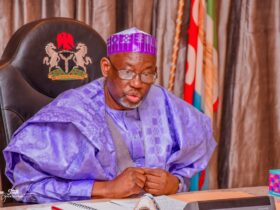
In a landmark decision, the U.S. Supreme Court ruled on Monday that Donald Trump cannot be prosecuted for official actions taken during his presidency but can face charges for private acts.
This is the first time the Court has recognized any form of presidential immunity from prosecution.
In a 6-3 ruling written by Chief Justice John Roberts, the justices overturned a lower court’s decision that had rejected Trump’s claim of immunity regarding criminal charges related to his attempts to overturn his 2020 election defeat to Joe Biden.
The six conservative justices formed the majority, while the three liberal justices dissented.
“We conclude that under our constitutional structure of separated powers, the nature of presidential power requires that former president have some immunity from criminal prosecution for official acts during his tenure in office,” Roberts wrote.
“At least with respect to the president’s exercise of his core constitutional powers, this immunity must be absolute. As for his remaining official actions, he is also entitled to immunity,” Roberts added.
Trump celebrated the ruling on social media, declaring, “BIG WIN FOR OUR CONSTITUTION AND DEMOCRACY. PROUD TO BE AN AMERICAN!” Chief Justice Roberts announced that Trump’s case would be sent back to the lower courts for further review.
The Supreme Court’s slow handling of this significant case has already benefited Trump by making it improbable that any trial on the charges brought by Special Counsel Jack Smith would conclude before the election.
The court reviewed four categories of conduct in Trump’s indictment: his conversations with Justice Department officials post-2020 election, his alleged pressure on then-Vice President Mike Pence to block Biden’s certification, his alleged role in assembling fake pro-Trump electors, and his conduct related to the January 6, 2021, Capitol attack.
The court granted Trump absolute immunity for his discussions with Justice Department officials but sent the case back to lower courts to decide on his immunity for the other three categories.
READ ALSO: Biden Sick With Cold; Reason for Unsteady Performance in Debate With Trump—Campaign Source
This marks the first instance since the nation’s founding that the Supreme Court has ruled that former presidents might be shielded from criminal charges.
Trump, the Republican candidate challenging Democrat Biden in the upcoming November 5 U.S. election, is the first former U.S. president to be criminally prosecuted and convicted of a crime.
The Supreme Court’s decision came from Trump’s appeal of a lower court ruling that rejected his immunity claim.
The case was decided on the last day of the court’s term. Trump faces four criminal cases, with the election subversion charges being one of them.
Justice Sonia Sotomayor, joined by Justices Elena Kagan and Ketanji Brown Jackson, sharply dissented, stating the ruling “makes a mockery of the principle that no man is above the law.”
Sotomayor criticized the ruling, arguing it “reshapes the institution of the presidency” by granting excessive immunity based on the court’s “misguided wisdom” about presidential action.
Trump’s argument was that his actions, taken while serving as president, should grant him immunity. Smith opposed this, asserting that no one is above the law.
Rick Hasen, a UCLA law professor and critic of Trump’s election overturn efforts, noted that the Supreme Court’s decision sets a precedent favoring presidential immunity, likely pushing the case past the election.
During April 25 arguments, Trump’s lawyers pushed for “absolute immunity” for former presidents regarding official acts, arguing without it, sitting presidents could face “blackmail and extortion” from political rivals.
The court’s conservative majority includes three justices appointed by Trump.
The special counsel’s August 2023 indictment charged Trump with conspiring to defraud the U.S., corruptly obstructing an official proceeding, and conspiring against Americans’ right to vote. Trump pleaded not guilty.
Trump’s trial was initially set for March 4 but has been delayed due to the immunity issue.
No new trial date is set. Trump’s immunity claim has been litigated for about nine months.
In a separate New York state case, Trump was found guilty on May 30 of 34 counts of falsifying documents to cover up hush money payments before the 2016 election. He faces criminal charges in two other cases, to which he has pleaded not guilty and called politically motivated.
A spokesperson for Smith declined to comment on the ruling. Smith’s lawyer argued that “absolute immunity” would shield presidents from criminal liability for severe crimes like bribery, treason, and sedition.
Hypothetical scenarios during arguments included a president selling nuclear secrets or ordering a coup.
Trump’s lawyer argued such actions could only be prosecuted if the president was first impeached and convicted, which has never occurred in U.S. history.
A May Reuters/Ipsos poll found only 27% of respondents agreed that presidents should be immune from prosecution unless first impeached and convicted by Congress.
Smith had sought a fast-track review after Trump’s immunity claim was rejected in December by U.S. District Judge Tanya Chutkan, but the justices denied this request, letting the lower court case proceed.
The Supreme Court’s decision on Trump’s immunity likely delays any federal election subversion trial verdict until after the election.
Federal prosecutors accused Trump of pressuring officials to overturn the 2020 election results and encouraging the January 6 Capitol attack. Trump supporters attacked the Capitol, disrupting Congress’s certification of Biden’s victory.
Trump and allies also allegedly planned to use false electors to thwart the certification.
The Supreme Court hasn’t played such a pivotal role in a presidential race since its Bush v. Gore decision in 2000.
Trump also faces state election subversion charges in Georgia and federal charges in Florida related to classified documents.
If Trump wins the presidency, he could try to end the prosecutions or pardon himself for federal crimes.
Follow the Parallel Facts channel on WhatsApp: https://whatsapp.com/channel/0029VaCQSAoHgZWiDjR3Kn2E









Leave a Reply